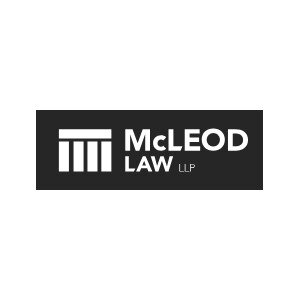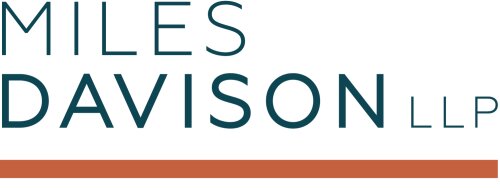Best Debt & Collection Lawyers in Calgary
Share your needs with us, get contacted by law firms.
Free. Takes 2 min.
List of the best lawyers in Calgary, Canada
About Debt & Collection Law in Calgary, Canada
Debt and collection laws in Calgary, Canada are designed to regulate the way debts are collected and managed. These laws aim to protect both creditors and debtors by ensuring fair practices and preventing abuse within the debt collection process. The collection of debts in Calgary is governed by various federal and provincial statutes, along with guidelines that dictate the behavior of collection agencies and creditors. Understanding these laws is crucial for anyone involved in debt and collection issues, whether you are a debtor, a creditor, or a legal professional.
Why You May Need a Lawyer
Legal guidance in debt and collection can be crucial in several scenarios, including:
- Unlawful Collection Practices: If you're experiencing harassment or illegal practices by debt collectors, legal advice can help you understand your rights and take appropriate action.
- Disputing a Debt: If you believe you do not owe the debt claimed or if the amount is incorrect, a lawyer can help dispute the debt with the creditor or collection agency.
- Negotiating Settlements: Lawyers can assist in negotiating repayment plans or settlements that are more manageable for you.
- Debt-Related Lawsuits: If you're being sued by a creditor, legal representation can provide defense strategies to protect your interests.
- Filing for Bankruptcy: In cases where debts are unmanageable, a lawyer can guide you through the bankruptcy process, including understanding the implications and procedures involved.
Local Laws Overview
Debt and collection in Calgary fall under both federal and provincial jurisdiction, which means multiple laws can apply, including:
- Alberta Fair Trading Act: This act includes provisions that regulate collection agencies and ensure they follow fair practices.
- Interest Act: This act limits the interest rates that can be charged on loans and sets requirements for the disclosure of interest rates.
- Bankruptcy and Insolvency Act: This federal act provides rules for bankruptcy and consumer proposals, offering options for individuals who are unable to repay their debts.
- Limitations Act: In Alberta, there are time limits within which a creditor can sue for debt recovery, commonly known as the statute of limitations.
Frequently Asked Questions
What are my rights if a debt collector contacts me?
In Calgary, debt collectors must adhere to specific guidelines. They cannot harass you, use abusive language, or call at unreasonable times. They must also provide you with accurate information about the debt.
Can a debt collector contact me if I dispute the debt?
If you dispute a debt in writing within 30 days of being contacted, collection efforts should cease until verification of the debt is provided.
How can I stop a collection agency from contacting me?
Send a written request to the collection agency, and they must stop contacting you except to inform you of specific actions, such as a lawsuit.
What is the statute of limitations on debt in Alberta?
The limitations period for most debts in Alberta is two years from the last acknowledgment of the debt.
Can a creditor garnish my wages without a court order?
No, a creditor must first obtain a court judgment before garnishing your wages.
What is a secured vs. an unsecured debt?
Secured debts are backed by assets that the creditor can seize if you default, like a mortgage. Unsecured debts have no such collateral, like credit card debt.
How can I negotiate with a creditor?
You can propose a repayment plan or a lump-sum settlement. It's often helpful to consult a lawyer for negotiating terms effectively.
What happens if I ignore a debt collector?
Ignoring can lead to legal action, including a lawsuit, which might result in wage garnishment or asset seizure if the creditor wins.
Can I be jailed for not paying my debts?
In Canada, you cannot be imprisoned for failing to pay consumer debts, but ignoring court orders related to debt might have legal consequences.
How does bankruptcy affect my credit report?
Bankruptcy typically stays on your credit report for seven years and can severely impact your credit score, making it harder to acquire loans.
Additional Resources
Here are some helpful resources for someone seeking legal advice on debt and collection:
- Alberta Consumer Protection: Offers guidance on fair trading and debt collection practices.
- Office of the Superintendent of Bankruptcy Canada: Provides information on consumer insolvency options.
- Legal Aid Alberta: Provides legal support for those unable to afford a lawyer.
- Credit Counselling Society: A non-profit service offering credit education and bankruptcy alternatives.
Next Steps
If you find yourself in need of legal assistance, consider taking the following steps:
- Consult a Lawyer: Seek initial consultations with lawyers specializing in debt and collections to discuss your situation.
- Gather Documentation: Collect all relevant documents concerning your debts and financial situation to provide to your lawyer.
- Explore Alternatives: Consider other options such as credit counseling or debt management plans before proceeding with legal action.
- Understand Your Rights: Familiarize yourself with the local laws and regulations on debt and collection to make informed decisions.
By taking informed steps, you can effectively manage your debt situation and protect your rights within the legal framework.
Lawzana helps you find the best lawyers and law firms in Calgary through a curated and pre-screened list of qualified legal professionals. Our platform offers rankings and detailed profiles of attorneys and law firms, allowing you to compare based on practice areas, including Debt & Collection, experience, and client feedback.
Each profile includes a description of the firm's areas of practice, client reviews, team members and partners, year of establishment, spoken languages, office locations, contact information, social media presence, and any published articles or resources. Most firms on our platform speak English and are experienced in both local and international legal matters.
Get a quote from top-rated law firms in Calgary, Canada — quickly, securely, and without unnecessary hassle.
Disclaimer:
The information provided on this page is for general informational purposes only and does not constitute legal advice. While we strive to ensure the accuracy and relevance of the content, legal information may change over time, and interpretations of the law can vary. You should always consult with a qualified legal professional for advice specific to your situation.
We disclaim all liability for actions taken or not taken based on the content of this page. If you believe any information is incorrect or outdated, please contact us, and we will review and update it where appropriate.











